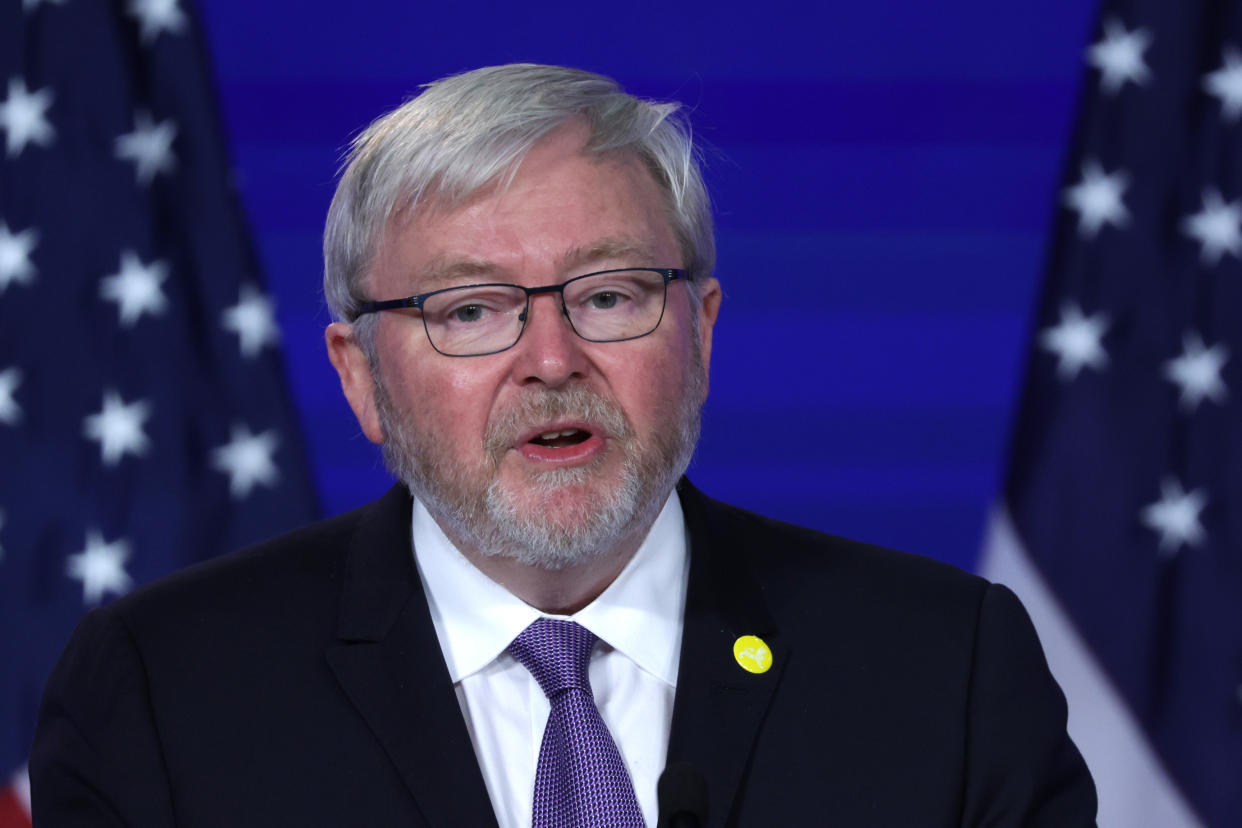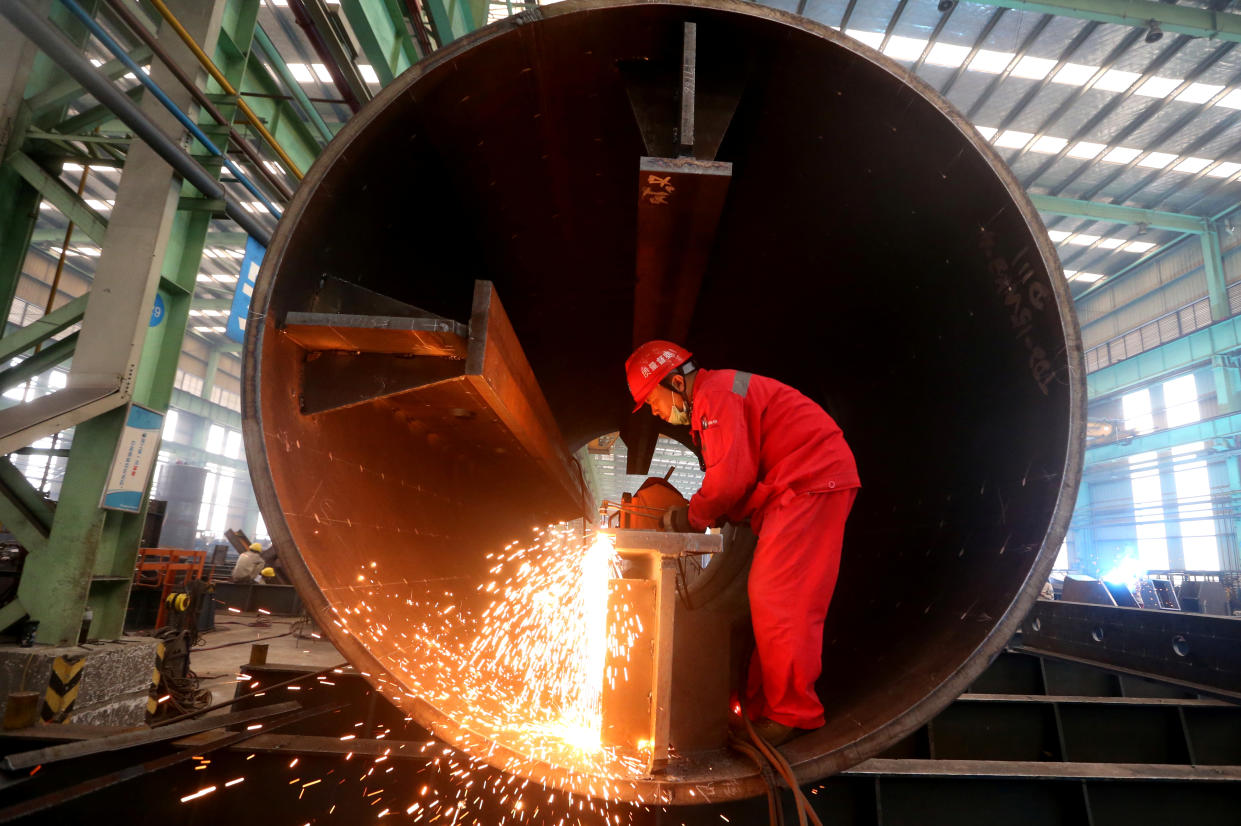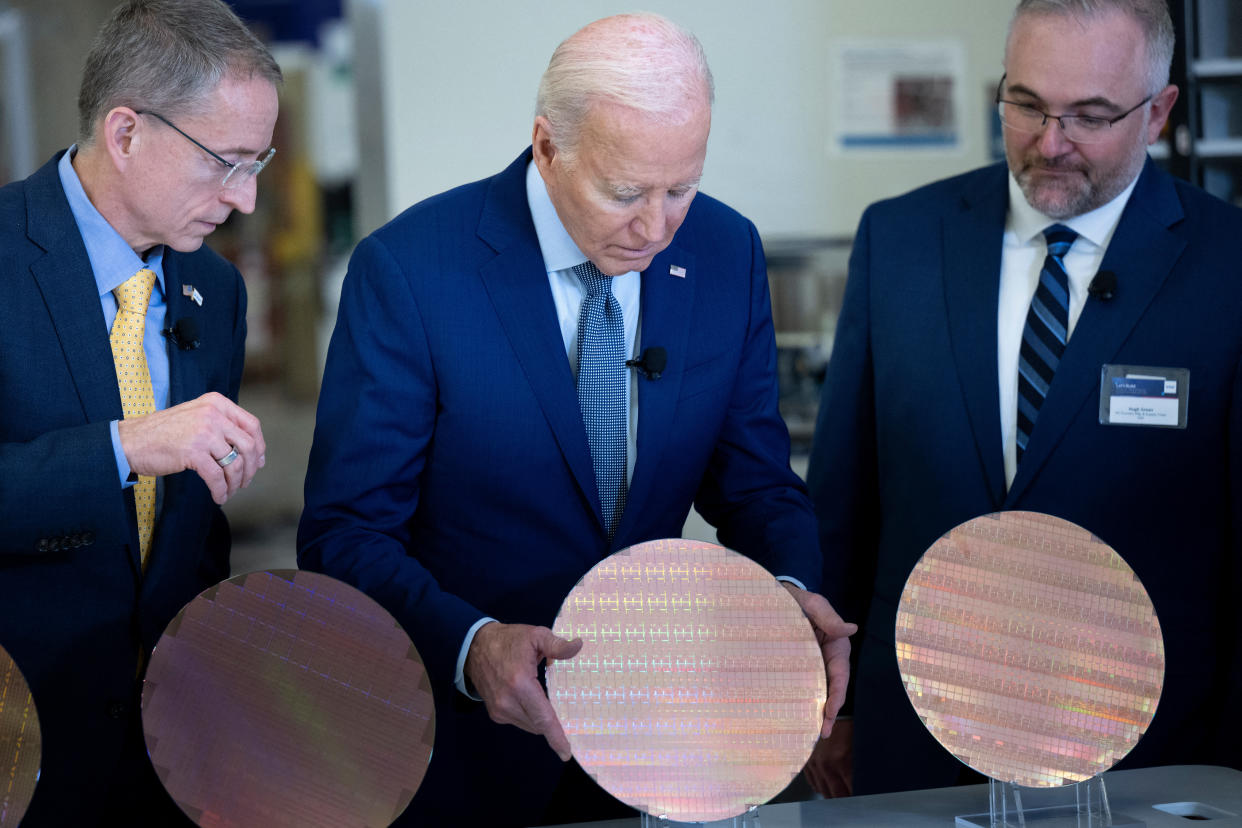Australian ambassador: 'American model is proving its resilience' despite threat from Chinese industrial policy
China may be outspending the US when it comes to industrial policy in sectors like electric vehicles and semiconductors, but America is winning on innovation where it can’t on price, according to one China expert.
Speaking to Yahoo Finance, Australian Ambassador to the US Kevin Rudd said the Biden administration’s own industrial policy, including subsidies doled out through Biden's landmark climate and chip manufacturing laws, is starting to move the needle in an increasingly heated competition with China.
“Where the American scientific, technological, industrial base has a huge advantage is, frankly, in its inbuilt nimbleness, flexibility, ability to pursue ready sources of capital to invest in products and services which deliver a real return,” said Rudd, the former Prime Minister of Australia. “When you cocktail that continuing strength of the US economy plus some of these turbo-charging funds, … I think the American model is proving its resilience.”

Since Biden took office in 2021, his administration has unleashed billions in federal dollars to shore up US manufacturing and accelerate the green transition, with a focus on clean energy and the semiconductor industry.
The Inflation Reduction Act (IRA), CHIPS and Science Act, and Bipartisan Infrastructure Law combined have set aside more than a trillion dollars in spending.
While the tax credits and subsidies included in those deals have attracted a wave of direct investments into the US from companies like Intel (INTC) and TSMC (TSM), the money spent pales in comparison to spending in China.
The Center for Strategic and International Studies (CSIS) estimated China spent 12 times as much as the US on subsidies, roughly 5% of the country's overall GDP.
“If you look at the scale of the Chinese industrial funds, what they called industrial guidance funds, they're of an order of magnitude which would make the CHIPS and Science Act and the IRA look like a walk in the park by comparison,” Rudd said, referring to Chinese spending over the last decade. “The question, of course, is the efficient use of capital. And for Chinese industrial policy, that's not been a prime concern.”

Rudd has previously said that Chinese policy seeks to obtain quantitatively “what you can’t seek out qualitatively.”
Success is measured by a 5% to 10% return on investment. That approach has led to concerns about excess inventory and cost depreciation globally in industries like the auto sector.
Since China began its push into new electric vehicles in 2014, more than 400 manufacturers and Chinese companies have flooded the market, according to CSIS, propelling the country to become the top EV market in the world. In recent years, American carmakers like Tesla (TSLA) have been engaged in a fierce price war to win over customers in an increasingly crowded market.
President Joe Biden has accused China of “unfair practices,” while the EU and UK have both launched “anti-subsidy” investigations into Chinese car imports.
However, US investments are showing signs of progress in other areas, including chip manufacturing.
A recent report by the Semiconductor Industry Association projected that US chip manufacturing capacity will triple by 2032 and the US share of the global fabrication market will increase from 10% to 14%. The study said that growth was fueled by the $50 billion CHIPS Act.

“When you see these massive US investments now in semiconductors, in renewable technology, and renewable energy, I think we need to have our imaginations open to what this will now generate as the next huge drivers of productivity growth in America as well, and growth more generally,” Rudd said.
The strategic competition between the US and China has fueled other countries to enact their own policies to invest in critical technologies.
Speaking at the Milken Institute Global Conference in Los Angeles, IMF managing director Kristalina Georgieva said that there are 2,500 industrial policy measures currently in place, with half those policies coming from China, the US, and Europe.
She warned about the impact that is likely to have on global trade and the economy, adding that just one-third of policies enacted have been justified in addressing “market failure.”
“What we know from experience is that … when one country introduces a restrictive measure, the country this measure is directed at would reciprocate,” Georgieva said. “So we are on this slippery slope.”
Akiko Fujita is an anchor and reporter for Yahoo Finance. Follow her on Twitter @AkikoFujita.
Click here for the latest economic news and indicators to help inform your investing decisions.
Read the latest financial and business news from Yahoo Finance
